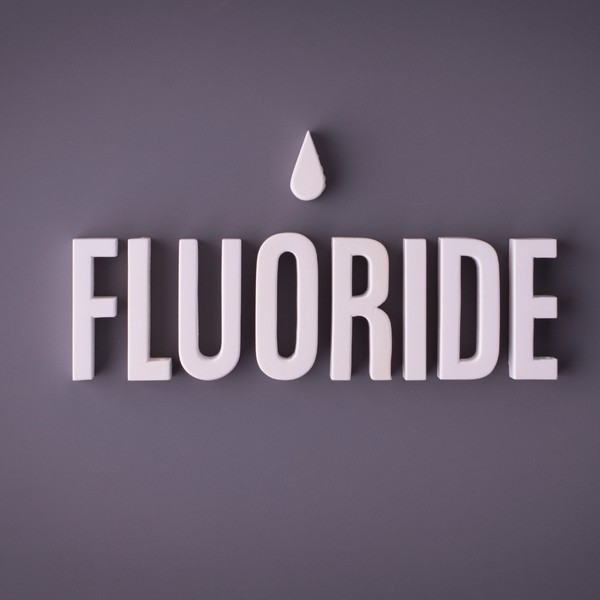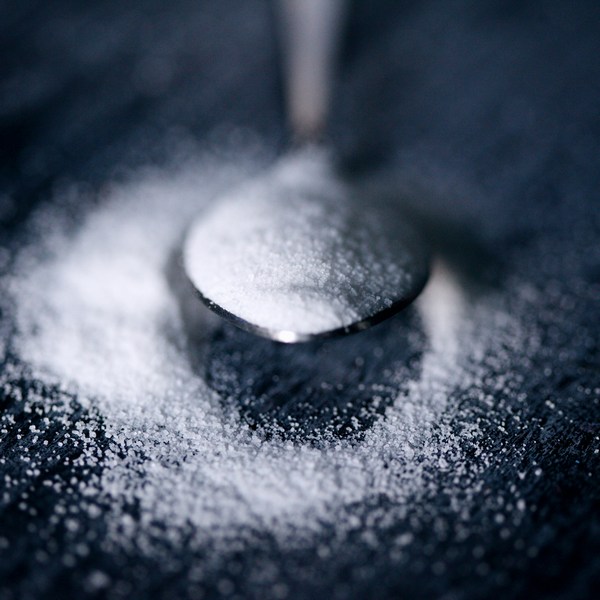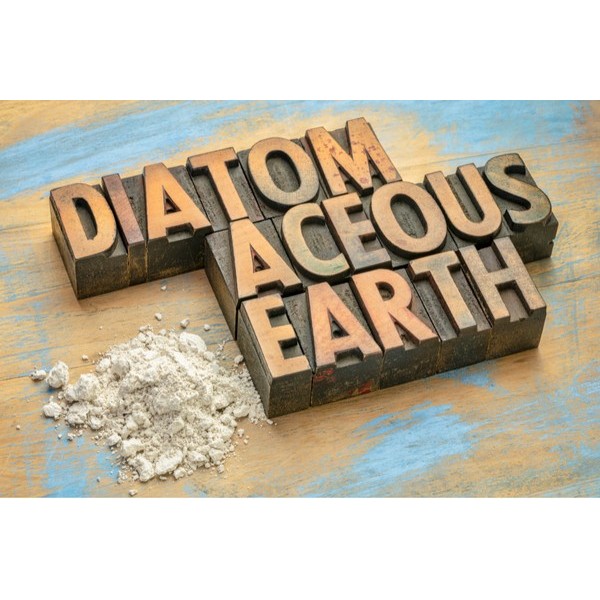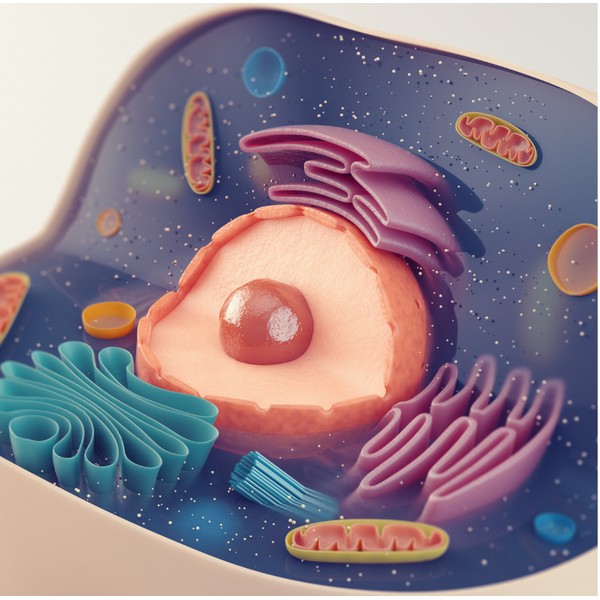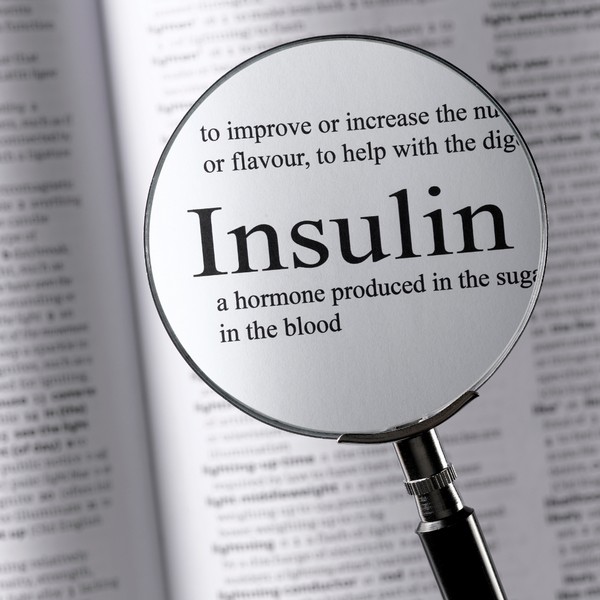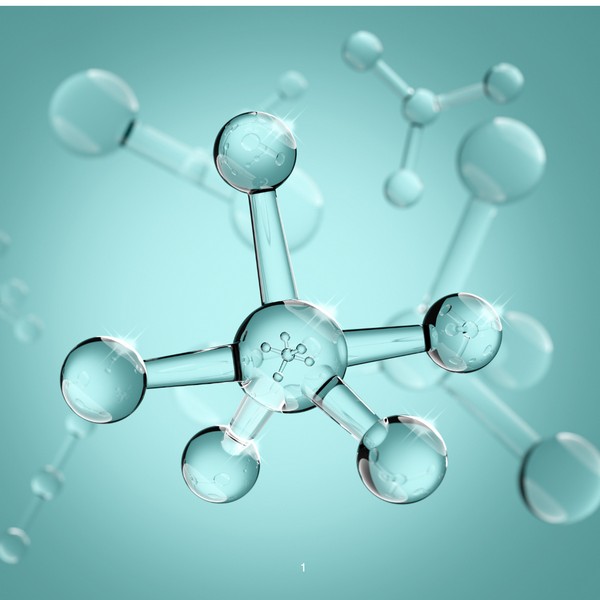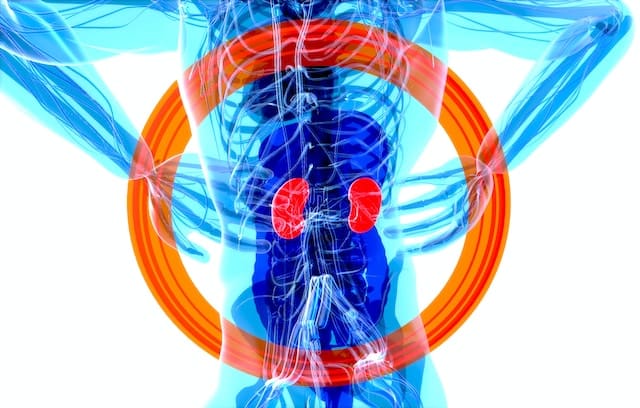Key Takeaways:
- Caffeine is the most common stimulant in energy drinks.
- Sugar, though harmful, is widely used in energy drinks.
- Electrolytes help maintain hydration and energy.
- B-vitamins support energy production; avoid synthetic versions.
- Taurine and guarana enhance mental and physical performance.
Introduction
Energy drinks have become increasingly popular for providing a quick boost of energy and focus. However, understanding the ingredients is important for evaluating their effects on health.
While some ingredients provide real benefits, others can pose risks if consumed regularly or in large amounts.
Caffeine

Caffeine is the primary stimulant in most energy drinks and is responsible for boosting alertness, focus, and energy.
It stimulates the central nervous system, helping you feel more awake. However, too much caffeine can lead to side effects like jitteriness, increased heart rate, and trouble sleeping.
It’s important to monitor your caffeine intake, especially if you consume other caffeinated products like coffee or tea.
Sugar
Sugar is a common ingredient in many energy drinks, used to enhance taste and provide quick energy.
However, it comes with numerous health risks. Excess sugar consumption is linked to weight gain, blood sugar spikes, and metabolic disorders.
While energy drinks offer an immediate rush of energy from sugar, this is followed by a crash. The body doesn’t need sugar from dietary sources since it can produce all the glucose it needs naturally.
Electrolytes

Electrolytes like sodium, potassium, and magnesium are needed for maintaining hydration, muscle function, and energy levels, especially during exercise.
Energy drinks often contain electrolytes to help replenish the body’s reserves, making them useful for endurance athletes or individuals who sweat heavily.
B-Vitamins
Natural vs. Synthetic
B-vitamins (such as B6, B12, niacin, and riboflavin) are essential for energy metabolism and brain function.
Many energy drinks contain B-vitamins to support the body’s energy production. However, it’s important to distinguish between natural and synthetic versions.
Natural food-based B-vitamins are beneficial, while synthetic versions can cause negative health effects over time, such as nerve damage or imbalance in the body’s nutrient levels.
Taurine
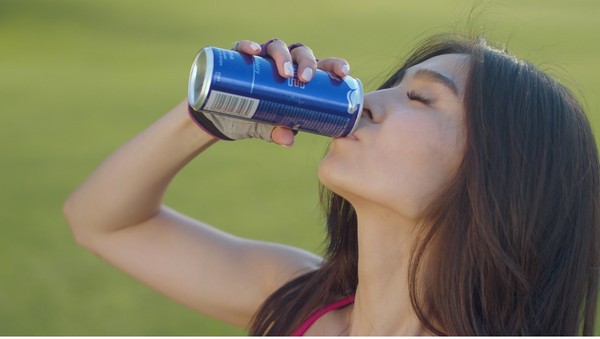
Taurine is an amino acid that helps support physical performance and energy production. It’s included in many energy drinks due to its ability to reduce muscle fatigue and enhance endurance.
Taurine may also help improve mental focus during intense activities.
Guarana
Guarana is a plant-derived stimulant that contains caffeine. It is often added to energy drinks to boost energy and mental clarity.
Guarana offers a more gradual release of caffeine compared to synthetic caffeine, making it a popular ingredient in natural energy products.
Ginseng
Ginseng is an herbal ingredient known for its ability to reduce fatigue and enhance cognitive function.
It has been used traditionally for centuries to promote energy, and in energy drinks, it helps improve mental performance and fight tiredness.
L-Carnitine
L-carnitine is an amino acid that plays a role in converting fat into energy. It is often included in energy drinks marketed towards athletes, as it can help improve endurance, recovery, and fat metabolism.
L-carnitine’s role in fat burning makes it a popular supplement for those focused on fitness.
Creatine
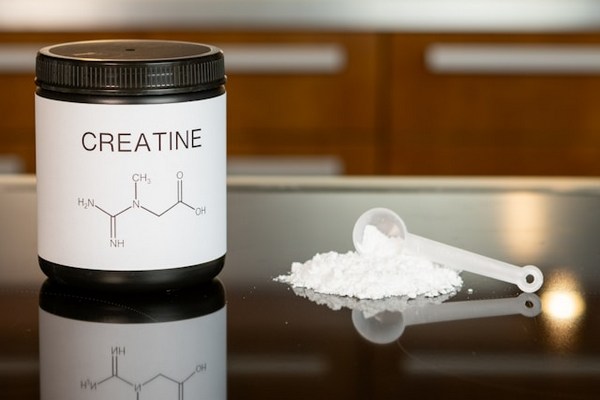
Creatine is a compound found naturally in muscles and commonly included in energy drinks for its ability to boost muscle performance.
It helps produce energy for high-intensity exercises and is often used to improve strength, recovery, and muscle mass.
Additional Common Ingredients
Artificial Sweeteners
In sugar-free energy drinks, artificial sweeteners like aspartame or sucralose are often used as substitutes.
While these sweeteners may reduce calorie intake, they come with potential health risks.
Long-term consumption of artificial sweeteners has been linked to metabolic disorders and negative effects on gut health.
Artificial Flavors and Colors
Many energy drinks contain artificial flavors and colors to enhance taste and appearance.
However, these synthetic additives are associated with long-term health risks, including metabolic imbalances and potential neurological effects.
It’s best to avoid products with excessive artificial ingredients whenever possible.
FAQs
What are the best ingredients to look for in an energy drink?
Look for natural sources of caffeine, electrolytes, taurine, and B-vitamins. Avoid drinks with added sugar, artificial sweeteners, and synthetic ingredients.
Are there healthier alternatives to sugar in energy drinks?
Yes, natural sweeteners like stevia or monk fruit are healthier options compared to sugar or artificial sweeteners.
How much caffeine is safe to consume from energy drinks?
It’s recommended to limit caffeine intake to 400mg per day from all sources, including coffee, tea, and energy drinks.
Why should synthetic B-vitamins be avoided?
Synthetic B-vitamins are less bioavailable and can cause negative health effects, such as nerve damage or an imbalance of nutrients.
Can energy drinks be harmful to long-term health?
Yes, especially those high in sugar, synthetic additives, and excessive caffeine. Long-term consumption can negatively affect heart health, metabolism, and overall well-being.
Research
Ahmadian, M., Dabidi Roshan, V., & Ashourpore, E. (2017). Taurine supplementation improves functional capacity, myocardial oxygen consumption, and electrical activity in heart failure. Journal of Dietary Supplements, 14(4), 422–432.
https://doi.org/10.1080/19390211.2016.1267059
Antonarakis, S. E. (2020). Taurine newborn screening to prevent one form of retinal degeneration and cardiomyopathy. European Journal of Human Genetics, 28(11), 1479–1480. https://doi.org/10.1038/s41431-020-0671-3
Antonio, J., Candow, D.G., Forbes, S.C. et al. Common questions and misconceptions about creatine supplementation: what does the scientific evidence really show?. J Int Soc Sports Nutr 18, 13 (2021).
https://doi.org/10.1186/s12970-021-00412-w
Baliou, S., Adamaki, M., Ioannou, P., Pappa, A., Panayiotidis, M. I., Spandidos, D. A., …, & Zoumpourlis, V. (2021). Protective role of taurine against oxidative stress (Review). Molecular Medicine Reports, 24(2). https://doi.org/10.3892/mmr.2021.12242
Bkaily, G., Jazzar, A., Normand, A., Simon, Y., Al-Khoury, J., & Jacques, D. (2020). Taurine and cardiac disease: State of the art and perspectives. Canadian Journal of Physiology and Pharmacology, 98(2), 67–73. https://doi.org/10.1139/cjpp-2019-0313
BURKE, D. G., S. SILVER, L. E. HOLT, T. SMITH-PALMER, C. J.CULLIGAN, and P. D. CHILIBECK. The effect of continuous low dose creatine supplementation on force, power, and total work. Int. J. Sports Nutr. Exerc. Metab. 10:235–244, 2000.
Bemben MG, et al. The effects of supplementation with creatine and protein on muscle strength following a traditional resistance training program in middle-aged and older men. J Nutr Health Aging. 2010;14(2):155-159.
Branch JD. Effect of creatine supplementation on body composition and performance: a meta-analysis. Int J Sport Nutr Exerc Metab. 2003;13(2):198-226.
Buford TW, et al. International Society of Sports Nutrition position stand: creatine supplementation and exercise. J Int Soc Sports Nutr. 2007;4:6.
Candow, D.G., Chilibeck, P.D. & Forbes, S.C. Creatine supplementation and aging musculoskeletal health. Endocrine 45, 354–361 (2014).
https://doi.org/10.1007/s12020-013-0070-4
Candow DG, et al. Effect of different creatine supplementation protocols on muscle strength and power in healthy young adults. J Strength Cond Res. 2014;28(1):232-239.
Candow, D. G., Forbes, S. C., Chilibeck, P. D., Cornish, S. M., Antonio, J., & Kreider, R. B. (2019). Effectiveness of Creatine Supplementation on Aging Muscle and Bone: Focus on Falls Prevention and Inflammation. Journal of Clinical Medicine, 8(4), 488. https://doi.org/10.3390/jcm8040488
Chilibeck, P. D., Kaviani, M., Candow, D. G., & Zello, G. A. (2017). Effect of creatine supplementation during resistance training on lean tissue mass and muscular strength in older adults: a meta-analysis. Open Access Journal of Sports Medicine, 8, 213–226. https://doi.org/10.2147/OAJSM.S123529
Chilibeck PD, et al. Effect of creatine ingestion after exercise on muscle thickness in males and females. Med Sci Sports Exerc. 2004;36(10):1781-1788.
Henderson, G. (2016). Court of last appeal – the early history of the high-fat diet for diabetes. J Diabetes Metab, 7, 8.
Hill, J.A., Agewell, S., Baranchuk, A., et al. (2009). Medical Misinformation: Vet the message. J Amer Heart Assoc, 18. Available at: [link]
Himsworth, H. (1949). The syndrome of diabetes and its causes. Lancet, 253, 465-473.
Himsworth, H.P. (1936). Diabetes mellitus: Its differentiation into insulin sensitive and insulin insensitive types. Lancet, 1, 127–130.
Joslin, E.P. (1941). A diabetic manual for the mutual use of doctor and patient. Philadelphia: Lea and Febiger.
Kim, C.Y., Lee, J.H., Kim, B.H., Yoo, S.K., Seo, E.S., Cho, K.S., Day, D.F. and Kim, D., 2002. Production of mannitol using Leuconostoc mesenteroides NRRL B-1149. Biotechnology and Bioprocess Engineering, 7, pp.234-236.
Kuo, P.T. (1967). Hyperglyceridemia in coronary artery disease and its management. JAMA, 201, 87-94.
Kuo, P.T., & Bassett, D.R. (1965). Dietary sugar in the production of hyperglyceridemia. Ann Intern Med, 62, 1199-1212.
Kuo, P.T., Feng, L., Cohen, N.N., et al. (1967). Dietary carbohydrates in hyperlipemia (hyperglyceridemia); hepatic and adipose tissue lipogenic activities. Am J Clin Nutr, 20, 116-125.
Mitchell, J. (2019, May 13). Heart and circulatory disease deaths in under 75’s see first sustained rise in 50 years. British Heart Foundation. Available at: [link]
Miselli, M.-A., Nora, E.D., Passaro, N., et al. (2014). Plasma triglycerides predict ten-years all-cause mortality in outpatients with type 2 diabetes mellitus: A longitudinal observational study. Cardiov Diabetol, 13, 135.
Morgan, W. (1877). Diabetes mellitus: Its history, chemistry, anatomy, pathology, physiology and treatment. London: The Homeopathic Publishing Company.
National Diabetes Data Group. (1979). Classification and diagnosis of diabetes mellitus and other categories of glucose intolerance. Diabetes, 28, 1039-1057.
Noakes, T.D., & Sboros, M. (2019). Real food on trial: How the diet dictators tried to destroy a top scientist. U.K.: Columbus Publishing Ltd.
Rabinowitz, I.M. (1930). Experiences with a high carbohydrate low calorie diet for the treatment of diabetes mellitus. Can Med Assoc J, 23, 489-498.
Ramesh, M., & Muthuraman, A. (2018). Flavoring and Coloring Agents: Health Risks and Potential Problems. Natural and Artificial Flavoring Agents and Food Dyes, 1-28. https://doi.org/10.1016/B978-0-12-811518-3.00001-6
Reaven, G. (2012). Insulin resistance and coronary heart disease in nondiabetic subjects. Arterioscler Thromb Vasc Biol, 32, 1754-1759.
Reaven, G.M. (1988). Banting lecture 1988. Role of insulin resistance in human disease. Diabetes, 37, 1595–1607.
Santulli, G., Kansakar, U., Varzideh, F., Mone, P., Jankauskas, S. S., & Lombardi, A. (2023). Functional Role of Taurine in Aging and Cardiovascular Health: An Updated Overview. Nutrients, 15(19).
https://doi.org/10.3390/nu15194236
Shaher, S. A., Mihailescu, D. F., & Amuzescu, B. Aspartame Safety as a Food Sweetener and Related Health Hazards. Nutrients, 15(16), 3627. https://doi.org/10.3390/nu15163627
Syrotuik DG, Bell GJ. Acute creatine monohydrate supplementation: a descriptive physiological profile of responders vs. nonresponders. J Strength Cond Res. 2004;18(3):610-617.
Volek JS, et al. The effects of creatine supplementation on muscular performance and body composition responses to short-term resistance training overreaching. Eur J Appl Physiol. 2004;91(5-6):628-637.
Waddington G, et al. Creatine supplementation for sprint and jumping performance in soccer players: a systematic review and meta-analysis. J Strength Cond Res. 2019;33(9):2514-2521.
Wu, G. (2020). Important roles of dietary taurine, creatine, carnosine, anserine and 4-hydroxyproline in human nutrition and health. Amino Acids, 52(3), 329–360. https://doi.org/10.1007/s00726-020-02823-6
Wu, G. F., Ren, S., Tang, R. Y., Xu, C., Zhou, J. Q., Lin, S. M., …, & Yang, J. C. (2017). Antidepressant effect of taurine in chronic unpredictable mild stress-induced depressive rats. Scientific Reports, 7(1), 4989. https://doi.org/10.1038/s41598-017-05051-3
Yoshimura, T., Manabe, C., Inokuchi, Y., Mutou, C., Nagahama, T., & Murakami, S. (2021). Protective effect of taurine on UVB-induced skin aging in hairless mice. Biomedicine and Pharmacotherapy, 141, 111898. https://doi.org/10.1016/j.biopha.2021.111898
Adrenal Fatigue: Symptoms & Prevention
Key Takeaways: Adrenal fatigue is often linked to prolonged stress, leading to tiredness, brain fog, and mood swings. Disruptions in cortisol production can affect energy,…
Are Energy Drinks Dangerous?
Key Takeaways: Caffeine is the most common stimulant in energy drinks. Sugar, though harmful, is widely used in energy drinks. Electrolytes help maintain hydration and…
Fluoride: Risks & Controversies
Key Takeaways Fluoride is widely used in dental products and water supplies, but its safety is debated. Overexposure to fluoride can lead to conditions like…
Do Artificial Sweeteners Cause Weight Gain? The Surprising Truth
Key Takeaways – Artificial sweeteners may disrupt gut microbiome balance, impacting digestion and immune health. – These sweeteners can interfere with natural metabolism, leading to…
Gout: Symptoms & Natural Treatment
Oxidative Stress: Causes, Effects, Solutions
Key Takeaways Oxidative stress results from an imbalance between free radicals and antioxidants in the body, leading to cellular damage. Chronic oxidative stress contributes to…
Diatomaceous Earth: Natural Uses & Benefits
Key Takeaways – Diatomaceous earth is a natural powder made from fossilized algae called diatoms. – It helps cleanse the body of toxins and heavy…
Why Sunlight is Essential for a Healthy Life
Key Takeaways Sunlight helps the body produce vitamin D, supporting bone health and immune function. Exposure to sunlight can improve mood and reduce symptoms of…
Gestational Diabetes Management: Expert Tips for Success
Key Highlights Gestational diabetes, marked by glucose intolerance during pregnancy, requires careful blood sugar control. A healthy pregnancy with gestational diabetes includes regular exercise, a…
Does Grounding or Earthing Actually Work?
11 Amazing Tips to Improve Your Sleep Quality
Limit Power NapsModulate Sunlight ExposurePay Attention to CaffeineSchedule BedtimePlan Ahead for DinnertimeMelatonin: Not what you thoughtSleep EnvironmentHot Bath or ShowerEliminate Blue LightSleep StackAdrenal CocktailMagnesium The…
Osteoarthritis Symptoms & Home Remedies
Key Takeaways Lifestyle adjustments and alternative therapies contribute to overall symptom management. Low-impact exercises and physical activity help maintain mobility and reduce pain. Heat and…
The EWG Dirty Dozen: What You Need to Know
Key Takeaways The Dirty Dozen list highlights fruits and vegetables with the highest levels of pesticide residues. In 2024, strawberries, spinach, and kale top the…
Natural Remedies for Common Ailments: From Headaches to Allergies
Key Takeaways The appeal of natural remedies lies in their holistic approach, fewer side effects, and environmental sustainability. Specific natural remedies can effectively alleviate common…
Bromate: Its Impact on Your Thyroid & Nervous System
Key Takeaways Bromate is a toxic byproduct from water disinfection, impacting thyroid and nervous system health. It interferes with iodine, leading to thyroid dysfunction and…
Melatonin: Functions and Benefits
Key Takeaways Melatonin helps regulate sleep-wake cycles, signaling the body to rest as it gets dark. It acts as an antioxidant, protecting cells from damage….
Sunburn Prevention: Holistic and Natural Approaches
Key Takeaways A poor diet increases the risk of sunburn and skin damage. Short, regular sun exposure reduces the risk of sunburn. Early morning and…
Adrenal Cocktail: Recipe and Benefits
Key Takeaways The adrenal cocktail supports adrenal health and maintains energy levels. Combines potassium, sodium, and vitamin C for effective adrenal nourishment. Consumed in the…
Managing Menopause Symptoms – A Guide to Navigate this Life Stage
Exercise RoutineManaging Stress Improving Sleep HabitsSeeking Emotional Support:Adjusting Your DietConsidering Alternative TherapiesFrequently Asked Questions Menopause is a natural stage in a woman’s life marking the…
The Randle Cycle: Glucose Fat Energy Dilemma
Key Takeaways The Randle Cycle explains how the body chooses between burning glucose and fatty acids for energy. Enzymes and hormones play a key role…
How Insulin Regulates Blood Sugar
Key Takeaways Insulin helps regulate blood sugar by moving glucose into cells. Imbalances in insulin levels can cause conditions like diabetes. Insulin resistance can lead…
Ceruloplasmin: The Master Antioxidant
Key Takeaways: Ceruloplasmin is a copper-containing enzyme essential for iron metabolism and preventing oxidative stress. It helps transport iron safely, preventing iron overload in tissues…
DNA & Longevity: Can You Live to 200?
Key Takeaways: Longevity is shaped by a mix of genetics and lifestyle. Certain genes are linked to longer lifespans. Lifestyle choices can influence how long…
Autism: Causes, Symptoms, and Management
Key Takeaways Autism Spectrum Disorder (ASD) is a complex neurodevelopmental condition that varies widely in symptoms and severity. Both genetic and environmental factors contribute to…
Elimination Diets: Find the Foods Behind Your Symptoms
Key Takeaways Elimination diets identify food intolerances by removing and reintroducing specific foods. Divided into two phases: elimination and reintroduction. Items like gluten, soy, and…
Superoxide Dismutase: Your Body’s Antioxidant Defender
Key Takeaways SOD protects against oxidative stress by neutralizing free radicals. Copper is necessary for SOD to function. Low SOD activity can lead to aging,…
GABA (gamma-aminobutyric acid)
Do Artificial Sweeteners Cause Weight Gain? The Surprising Truth
Key Takeaways – Artificial sweeteners may disrupt gut microbiome balance, impacting digestion and immune health….
What You Need to Know About Salt and Your Health
Table of ContentsThe Health Benefits of Unrefined Sea SaltElectrolyte BalanceMineral ContentImproved HydrationBoosted Energy LevelsImmune SupportImproved…
How To Optimize Your Weight Loss Efforts
1. Get Your Beauty Sleep for Optimal Weight Loss2. Natural Solutions for Weight Loss3. Stress…
11 Amazing Tips to Improve Your Sleep Quality
Limit Power NapsModulate Sunlight ExposurePay Attention to CaffeineSchedule BedtimePlan Ahead for DinnertimeMelatonin: Not what you…
7 Simple Tips for Lowering Blood Pressure Naturally
Maintaining healthy blood pressure levels is essential for overall well-being, as high blood pressure can…
Proteolytic Enzymes and Heart Health: What the Research Shows
Your heart works tirelessly to pump blood throughout your body, delivering essential nutrients and oxygen…
Is Eating Sugar Really That Bad For Your Health?
Should You Really Be Concerned? In short, YES! Thank you, that’s all folks, and do…
Natural Treatment for Irritable Bowel Syndrome (IBS): Effective Remedies Explored
Understanding IBSSymptoms of IBSRole of Diet in IBSNatural Remedies for IBSSupplements for IBSRole of Probiotics…
Medium Chain Triglycerides (MCTs): Uncovering 5 Health Benefits
This potent, natural source of energy has gained considerable attention in recent years for its…
7 Remedies for Kidney Stones: A Comprehensive Guide
Key Takeaways Staying well-hydrated and adopting a balanced diet can help prevent kidney stones. Knowing…
Berberine Has 11 More Incredible Benefits Than You Thought
Berberine is a compound found in several plants that has been used for centuries in…


